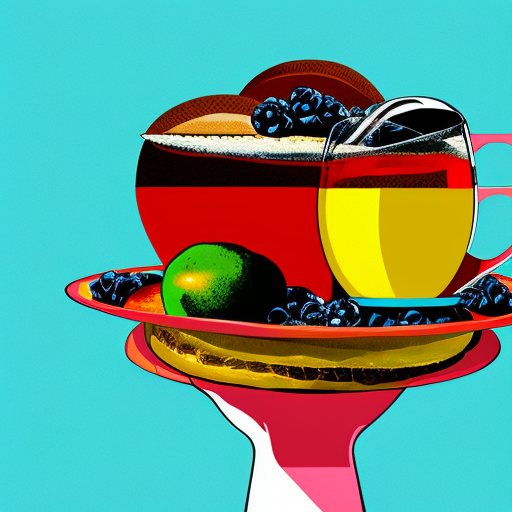Summary:
In “Breakfast of Champions” by Kurt Vonnegut, the reader is taken on a satirical journey through the lives of two main characters, Kilgore Trout and Dwayne Hoover, as their paths intersect in the fictional town of Midland City. Through Vonnegut’s unique storytelling style, the novel explores themes of free will, mental illness, and the absurdity of human existence.
The Absurdity of Human Existence:
Vonnegut uses “Breakfast of Champions” to highlight the absurdity of human existence. The novel begins with an introduction to Kilgore Trout, a struggling science fiction writer who is unaware of his own significance in the grand scheme of things. Trout’s stories, which depict a dystopian future, are dismissed by society as mere entertainment. However, as the narrative unfolds, it becomes clear that Trout’s creations hold a mirror to the absurdity of the real world.
Mental Illness and Perception:
Dwayne Hoover, the other central character, is a successful car dealer who gradually descends into madness throughout the story. Vonnegut explores the fragile nature of human sanity and the impact of external influences on one’s mental state. As Dwayne’s perception of reality becomes distorted, his actions become increasingly erratic, leading to a violent climax. This exploration of mental illness serves as a commentary on the fragility of the human mind and the potential consequences of societal pressures.
Free Will and Determinism:
Vonnegut delves into the philosophical debate of free will versus determinism in “Breakfast of Champions.” The author presents his characters as products of their circumstances, shaped by external forces beyond their control. Kilgore Trout, for example, is a victim of his own circumstances, struggling to find recognition for his work. Dwayne Hoover, on the other hand, is influenced by the advertising slogans he encounters, which ultimately contribute to his descent into madness. Vonnegut suggests that free will may be an illusion, with individuals merely acting as pawns in a larger, predetermined game.
Throughout the novel, Vonnegut employs his signature blend of humor and satire to shed light on the human condition. His use of absurdity and dark humor serves as a means of critiquing societal norms and challenging readers to question their own existence. “Breakfast of Champions” is a thought-provoking exploration of the human experience, reminding us of the absurdities and complexities that shape our lives.
Key Takeaways:
- The absurdity of human existence is a central theme in the novel, with Vonnegut using humor and satire to highlight the contradictions and complexities of life.
- Mental illness and the fragility of the human mind are explored through the character of Dwayne Hoover, emphasizing the impact of external influences on one’s perception of reality.
- The novel raises questions about free will and determinism, suggesting that individuals may be products of their circumstances rather than autonomous beings.
“I went to the University of Chicago for a while after the Second World War. I was a student in the Department of Anthropology. At that time, they were teaching that there was absolutely no difference between anybody. They may be teaching that still.”
– Kurt Vonnegut, Breakfast of Champions
In conclusion, “Breakfast of Champions” is a satirical masterpiece that challenges readers to question the absurdities of human existence. Through his unique storytelling style, Vonnegut explores themes of mental illness, free will, and the impact of external influences on individual perception. The novel serves as a reminder that life is a complex and often contradictory journey, urging us to reflect on our own place in the universe.












